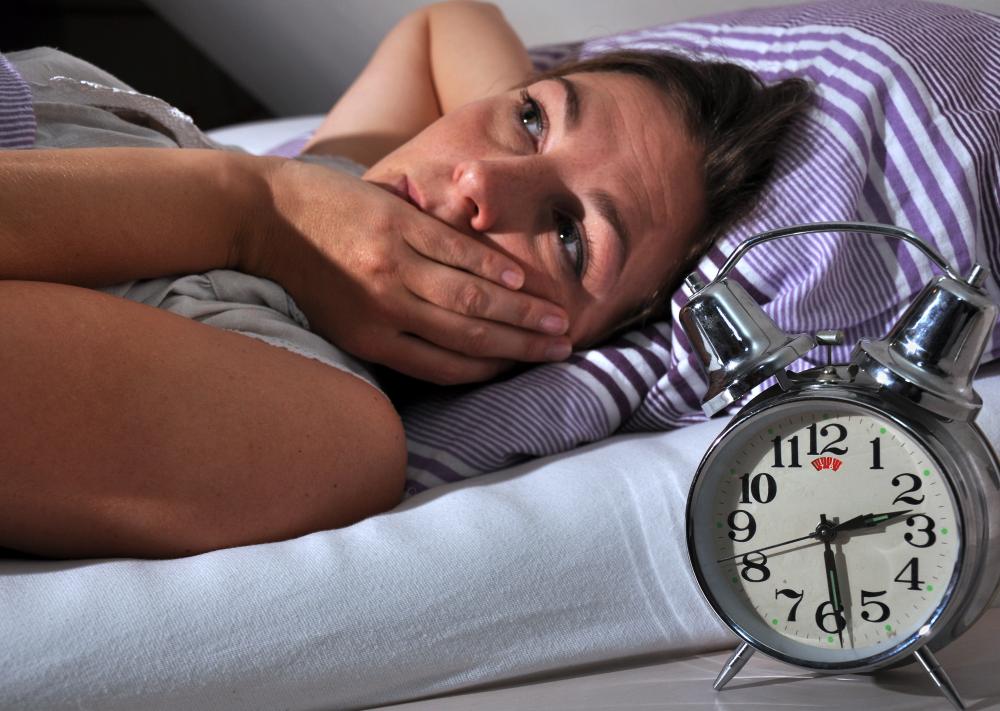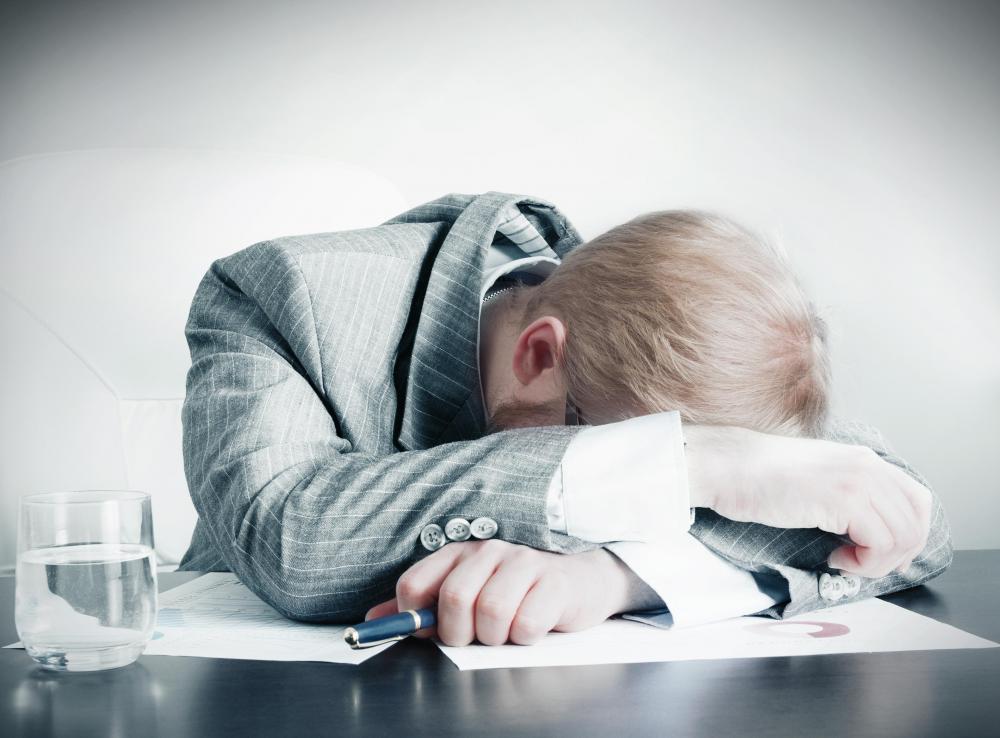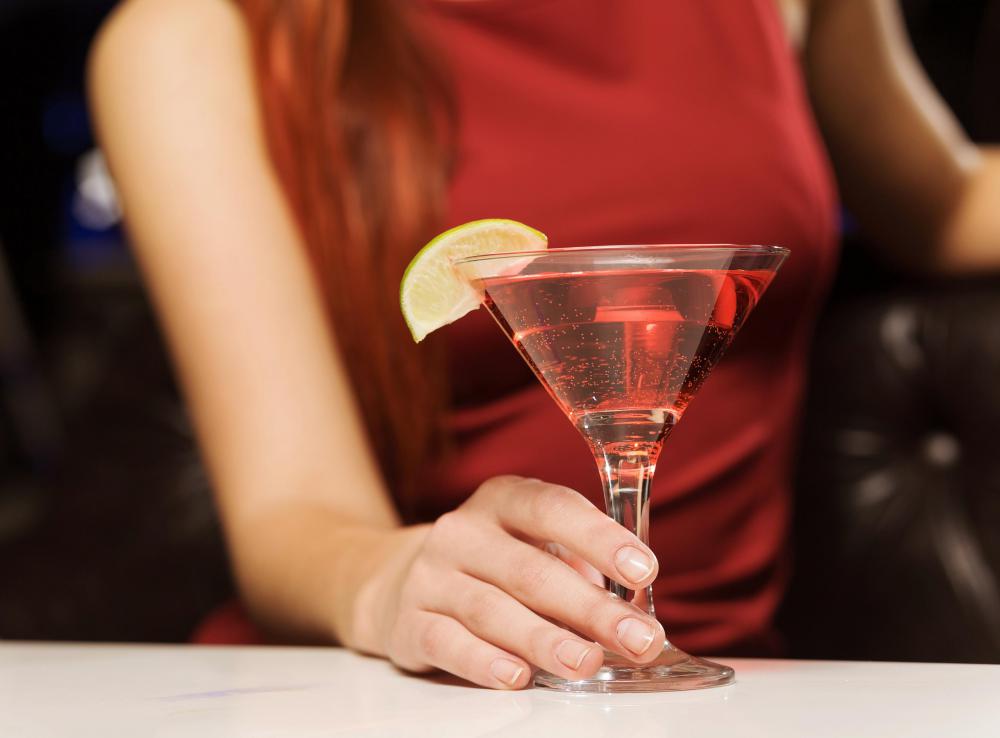At WiseGEEK, we're committed to delivering accurate, trustworthy information. Our expert-authored content is rigorously fact-checked and sourced from credible authorities. Discover how we uphold the highest standards in providing you with reliable knowledge.
What Are the Risks of Combining Diazepam and Alcohol?
Diazepam and alcohol are a potentially dangerous combination. Both substances create central nervous system (CNS) depression. Additionally, they affect breathing, tending to make breaths shallower or increase the length of time between them. Taken together, these two drugs create a much stronger set of adverse effects.
There are differences between diazepam and alcohol. Diazepam belongs to a class of drugs called benzodiazepines, and alcohol is normally considered a depressant. The similarity of these two substances is noted in the way they impact brain neurotransmitters. Both drugs affect GABA receptors, and their action is often compared to each other since they achieve similar effects.

Given this comparable action, it isn’t hard to see why a combination of diazepam and alcohol is potentially dangerous. As the two drugs, in part, accomplish the same thing, taking both is analogous to taking a much larger dose of either one alone. They are likely to cause a much stronger reaction when used together.
Some of the symptoms that might accompany simultaneous use of diazepam and alcohol include increased drunkenness, dizziness, strongly impaired motor skills, and excess sleepiness. Individuals taking both drugs might notice that they feel intoxicated sooner, even with smaller amounts of alcohol. Given this combined effect, people may exercise poor judgment about their own abilities. They should definitely not consider themselves able to operate a vehicle or other machinery when they use these two drugs together.
The greatest risk of combined stimulation of the GABA receptors is that death will occur. Such a death isn’t related to alcohol toxicity. Instead, it may result from suppression of breathing and CNS depression.

When people use these drugs together, they may experience sleep apnea or stop-breathing episodes. While these ordinarily result in a person waking enough to re-establish breathing, excess sedation and sleepiness may mean people won’t wake up enough when sleep apnea occurs. Under these circumstances, it is quite possible to die while sleeping.
Ordinarily, small amounts of both substances are unlikely to be fatal. Large amounts can be, however. Adding other substances, like pain medicines, other benzodiazepines, and cough syrups that contain opioids, increases this danger. Moreover, even if the threat is low, it is still present. Some people experience greater sedation side effects with low amounts of both drugs, and may be at an unknown, elevated risk.

In most instances, it is unwise to combine diazepam and alcohol. Paradoxically, some physicians recommend the combination, and might especially prescribe it to address a single anxious event. For example, doctors might suggest a patient with a fear of flying use a low dose diazepam with a glass of wine before boarding a plane. This suggestion isn’t necessarily without merit because it takes advantage of the combination's effectiveness. Still, patients are advised to avoid using these two drugs together, unless a physician expressly recommends it.
AS FEATURED ON:
AS FEATURED ON:
















Discussion Comments
@SarahGen-- You will be fine. Just don't drink when you are taking the diazepam the same day.
I did that once and the side effects were quite bad. I was so drowsy and dizzy that I had to leave early and go home. Someone had to go with me because I had a hard time walking. I also felt sick for a few days afterward. There are some drugs that can be mixed with moderate alcohol without problems. Diazepam is certainly not one of them. You want to avoid this mixture completely. However drinking one or two days after quitting the medication is fine.
@SarahGen-- You might want to check with your doctor about this.
As far as I know, the maximum half life of diazepam is 100 hours. So it takes up to 200 hours for all of the medication to leave your system. 200 hours is a little more than eight days. So technically, tomorrow, some of the medication will still be in your system. Of course, the dose is important in this calculation as well. If you were on a very low dose, you will mostly be free of the drug by tomorrow. I think it will be okay to drink but be careful. You might want to have a single drink and then wait for a while to see if it's affecting you more than usual. Diazepam increases the effectiveness of alcohol. So it takes much less to get drunk and lose control.
Also, if you were on diazepam for a while and avoided alcohol during this time, it's possible for your alcohol tolerance to have decreased.
What about drinking alcohol soon after diazepam treatment is over? I quit diazepam two days ago. Is it okay for me to drink alcohol tomorrow? Will I still experience side effects?
Post your comments